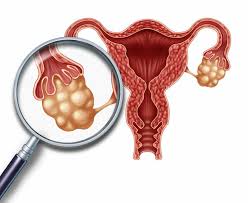Polycystic Ovary Disorder (PCOD) is a common hormonal condition that affects women of reproductive age. It is characterized by the presence of multiple cysts on the ovaries, irregular periods, and elevated levels of male hormones (androgens). This can lead to symptoms such as weight gain, acne, excessive hair growth, and even infertility. In Kota, like many other cities, more women are seeking treatment for PCOD, and advancements in medical care have made it possible to manage the condition effectively.

Understanding PCOD
PCOD occurs when the ovaries are unable to release eggs regularly, leading to the formation of cysts. Women with PCOD may experience an imbalance in their menstrual cycles, making it difficult to conceive. Other symptoms include heavy bleeding, missed periods, thinning hair, and skin issues like acne or oily skin. Women with PCOD also have a higher risk of developing type 2 diabetes, high cholesterol, and endometrial cancer if left untreated.
The Importance of Early Diagnosis
Early diagnosis is essential in managing PCOD effectively. If you experience any of the symptoms of PCOD, it is crucial to consult a gynecologist or an infertility specialist who can perform a series of tests, including blood tests to check hormone levels and an ultrasound to assess the condition of the ovaries. Early intervention can help prevent the progression of symptoms and reduce the risk of complications such as infertility, obesity, and diabetes.
PCOD Treatment Options in Kota
The treatment of PCOD varies depending on the severity of the symptoms, the patient’s age, and whether they are planning to conceive. Here are some common treatment options available in Kota:
- Lifestyle Modifications
- One of the most effective ways to manage PCOD is through lifestyle changes. Maintaining a healthy diet, exercising regularly, and managing stress can help regulate hormones and control symptoms.
- A balanced diet rich in fiber, lean proteins, and healthy fats can help regulate insulin levels and reduce weight, which is often a concern for women with PCOD.
- Regular exercise helps manage weight, reduce insulin resistance, and improve overall well-being.
2. Medications
- Hormonal Therapy: Birth control pills or other hormonal treatments can help regulate menstrual cycles, reduce excessive hair growth, and improve acne.
- Metformin: This medication is commonly prescribed to improve insulin resistance and restore ovulation, making it helpful for women trying to conceive.
- Ovulation Induction: For women struggling with infertility due to PCOD, medications like Clomid are prescribed to induce ovulation. Our services: PCOD treatment in Kota
3. Surgical Intervention
- In some cases, when medications fail, doctors may recommend laparoscopic ovarian drilling, a minimally invasive surgery to remove a small portion of the ovarian tissue, which may help restore normal hormone levels and ovulation.
4. Fertility Treatment
- For women experiencing infertility, assisted reproductive technologies like intrauterine insemination (IUI) or in-vitro fertilization (IVF) may be suggested, especially if other treatments do not work.
Choosing the Right Specialist for PCOD Treatment in Kota
When seeking treatment for PCOD in Kota, it’s essential to choose a qualified and experienced gynecologist or endocrinologist who specializes in women’s health and fertility. Look for specialists who offer personalized care and a holistic approach to treatment, taking into account your medical history, lifestyle, and reproductive goals.
Conclusion
PCOD is a manageable condition, and with the right treatment and lifestyle changes, women can live healthy, fulfilling lives. If you’re seeking PCOD treatment in Kota, consult a trusted gynecologist to explore the best options tailored to your needs. Early diagnosis, combined with appropriate care and support, can help you take control of your health and minimize the impact of PCOD on your life.




.jpg)

Comments